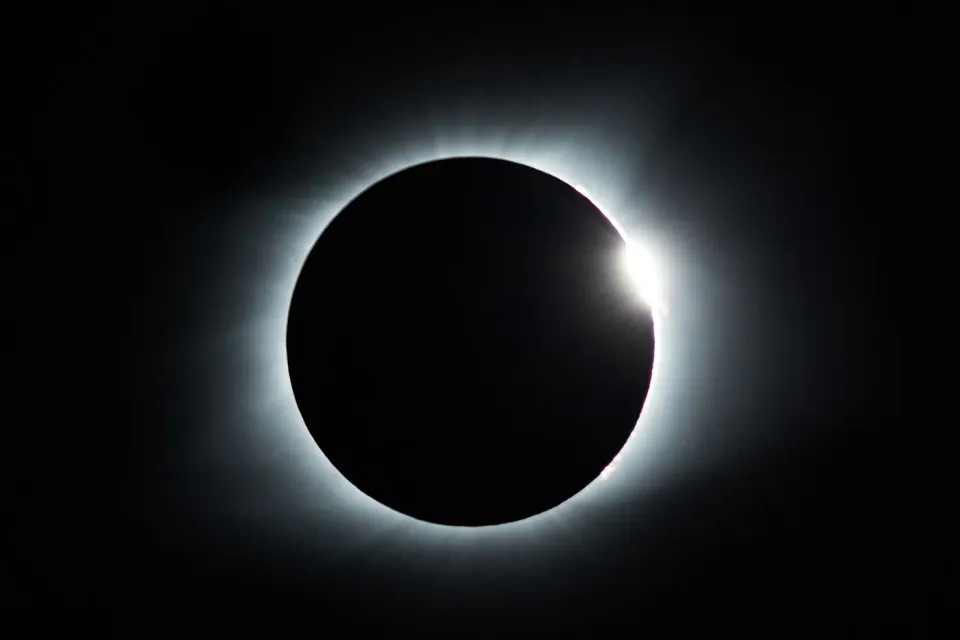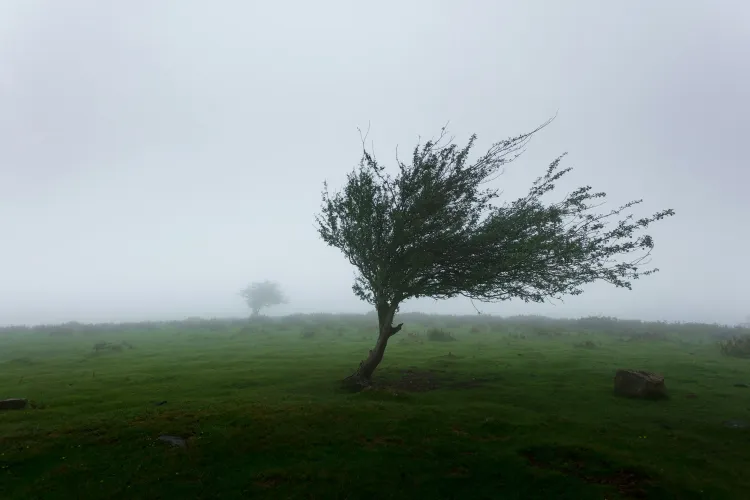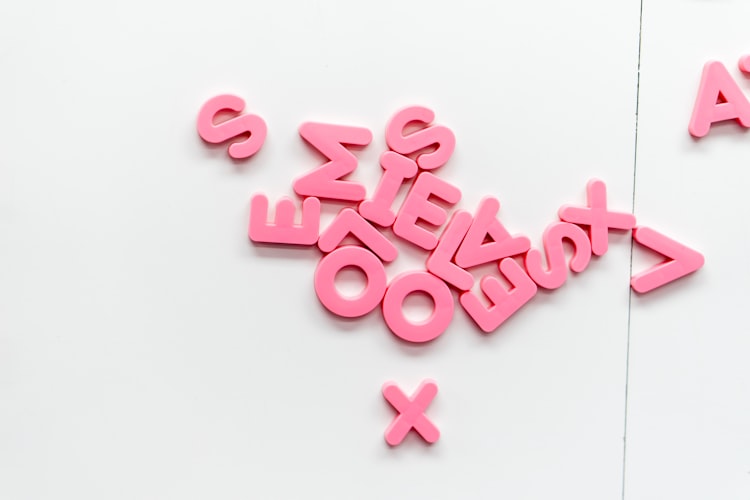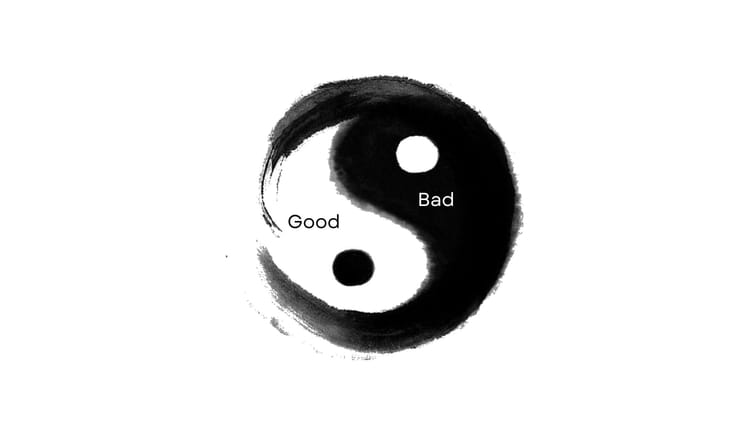Eclipsing ideology: Exploring the Impermanence of Fixed Beliefs and the Nature of Human Expression

On Monday, April 8, 2024, I was able to witness the total solar eclipse.
From where I live in south Montreal, and with the perfectly clear sky — without hyperbole — this was a once-in-a-lifetime event. Minutes before the total eclipse, I stood outside my apartment bilding on the sidewalk, with many others doing the same. It was a moment when, if you don’t pay attention, you will miss it.
Thoughtfully, someone who lives in my building gave me a pair of eclipse-viewing glasses.
With a few minutes remaining, I put them on. I could see the crest of the moon just below the outline of the remaining sphere of light from the sun. The sliver of sun became narrower and sharper until it was a dot and then nothing more. During this time, while the shadows on the ground grew longer, if you looked up towards the sun, it seemed as if nothing was happening.
The total eclipse was definitely something I’ve never seen before — and will never see again in my lifetime.
Once the moon was in front of the sun, all I saw through the eclipse-glasses was blackness. I took them off to glance up. With perfect sharpness, a pure white light encircled a space of near darkness, like a ring of fire in the sky.
All I could think to myself was, “This is awesome!”
“If you realize that all things change, there is nothing you will try to hold on to.”
— Stephen Mitchell, “Tao Te Ching: A New English Version.”
Have you noticed how all moments in life — including life itself — are ephemeral?
In nature, nothing remains fixed. The vital energy on this planet is one of life, death, and evolution. Humans are part of this cycle, not separate from it, no matter how hard we try to immortalize ourselves or leave a legacy for those who follow to memorialize our deeds.
The same applies to fixed ways of thinking like unquestioned beliefs, rigid dogma, and fundamentalist ideologies — all of which are creative imaginings fixed in the past.
Why is it that we have falsely confused the idea of permanence and divinity with words we have written?
Just because a book was written 2,000 years ago, does not make it useful — let alone correct, honest, or truthful — then or now. Anything that was once created by the human mind contains within it the seeds of further evolution and the natural progression towards decay and death. When we remain fixed in our beliefs, we might as well be without life, since we are stuck in the past.
For example, the idea that gender is fixed and can only be man and woman, that (white, Christian, wealthy) men alone should have power, and that the people should be subservient to one political party or a god are all belief systems the presume to be unquestionable.
What if you considered beliefs to be ideas fixed in the past?
All beliefs should be critically questioned from the perspective that every single human idea or thought — at one time — never existed.
If we can think it, we can create it. Every idea is an act of creation. Each new idea has the potential to improve or replace old ideas. As our creative capacities evolve, we disrupt the ideas of old which benefits those who are flexible yielding — those who can go with the flow.
If we create something terrible and harmful to humanity and nature, we can create something to correct our mistake.
“When you change the way you look at things, the things you look at change.”
— Wayne W. Dyer, “Change Your Thoughts, Change Your Life: Living the Wisdom of the Tao.”
Isn’t it incredible that humans can create from their thoughts alone?
Someone had the idea, “How can I build a pyramid?” Another person pondered, “Could humans fly?”, and the idea for an airplane took flight. Of course, someone wondered, “How can I control people?”, and they created a rigid political or religious systems to distract the population from their true intentions.
Human thought and ideas can lead to dangerous outcomes when left unchecked.
Have you ever wondered why religions condemn those who don’t believe in their “rules”?
In nature, there is no right or wrong. There are no rules, only patterns. All humans are part of nature. So, why is it that humans don’t organize themselves to mirror more the patterns of natural order?
Like the total solar eclipse of Monday, April 8, 2024, when the moon passed in front of the sun, temporarily putting everything into darkness in the middle of the afternoon, the moment soon passed.
Before science was able to explain what an eclipse was, humans were awed by this natural and spectacular event. It inspired either awe in the form of wonder and incredulity — based on simple ignorance and marvelling at the beauty of the natural world — or abject fear of the unknown and terror that the sun may never return:
“Nothing in the world can surprise me now. For Zeus, the father of the Olympian, has turned mid-day into black night by shielding light from the blossoming sun, and now dark terror hangs over mankind.”
The reactions to people freely exploring and labelling their gender identity today, is similar to how we viewed an eclipse before the scientific era.
Consider this statement: Human expression is natural and free.
- If you believe the above statement to be true, then your expression of disagreement is valid only in the sense that you are free to have that expression.
- However, by believing in my statement above, you must also allow for people to freely express who they are without prejudice or restriction.
When you realize that both sides of this equation are true, in that you can freely observe others’ self-expression — and freely express who you are — then you understand the natural order of mutually arising possibilities.
What some label as “gender ideology” is an idea, a thought, that arises from their beliefs. Without the rigid belief that there are only two genders — one side of a duality — the opposing side of a free and fluid spectrum of gender express has no mutual arising — and vice versa.
“Whether you like it or not, gender diversity in the (tr)animal kingdom blurs the lines of “biological sex.”” (Source)
Remember my description of the complete solar eclipse?
With perfect sharpness, a pure white light encircled a space of near darkness.
No matter how hard people try to oppress, restrict, or suppress human expression through politics or religion, their efforts are like the moon passing in front of the sun. As I wrote in a recent article,
“Eventually, people will see the glimmer of light through the darkness. They will pry open the walls of their captivity, revolting against a system that is life-taking, instead of life-giving.”
Extending this metaphor of the solar eclipse, fundamentalist ideologies thrive in the darkness of the mind because they need to maintain power over what and how people think.
Oppressive control requires keeping people in the dark and away from the light of freedom emerging from the opposite side of the total eclipse. Limiting beliefs and faith without reason can only exist with the willful ignorance of shrouding reasonable, logical, and justifiable reasons from discussion. How has this played out in your own life?
Life is about embracing the dichotomy of possibility — to be flexible and yielding and go with the flow.
I invite you to consider the mutually arising dualities and polarities that are the basis of your perceptions, and where that positions you in relation to your being of nature.
Nature does not dictate what is right or wrong. Since humans are also of nature, how can anyone claim the authority to know what constitutes human identity?
Dogma and ideology are inflexible and rigid — the opposite of thriving.
What if you saw yourself as an integrated and natural part of the self-same world you both observe and exist within, not apart or separate from it?
Could you choose to lead yourself from an ethical position of acceptance, recognition, respect, and understanding for all humanity?





Member discussion